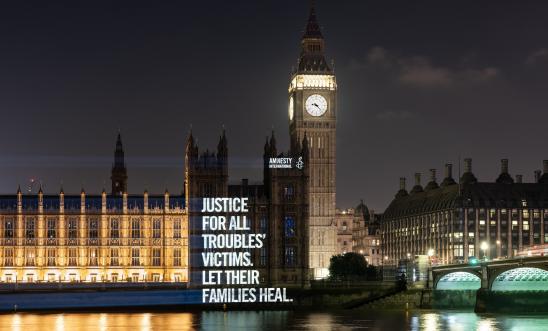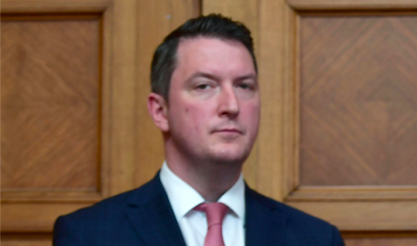COMPLAINTS have been made after the families of Troubles victims received letters from the Police Ombudsman confirming that their cases would not be investigated.
The letters have been branded ‘cold’ and ‘impersonal’ by an organisation representing the families in Northern Ireland, while an MP has called them ‘disgraceful’.
On November 14 the Office of the Police Ombudsman delivered 26 letters to the offices of the Relatives for Justice organisation in Belfast.
They follow the enactment of the British Government’s controversial Legacy Act, which came into force in September.
The new legislation, which was opposed by all the major political parties in Northern Ireland, ends all investigations and inquests into Troubles-era cases.
It instead offers conditional immunity for those involved who cooperate with an Independent Commission for Reconciliation and Information Recovery (ICRIR).
The sentiment of each of the letters was the same, according to the Relatives for Justice organisation, with none referring to the victim in question by name.
“Apart from the opening line of address each letter said exactly the same thing – that due to the Legacy Act the Police Ombudsman is not in a “position to investigate” their complaints,” the confirmed.
"The letters are impersonal, not as much as mentioning the name of the person killed during the conflict, and acknowledge that families may view this as an “unwelcome” development,” they added.
 Amnesty International UK projected Troubles related imagery onto the Houses of Parliament in Westminster in protest against the controversial Legacy Bill
Amnesty International UK projected Troubles related imagery onto the Houses of Parliament in Westminster in protest against the controversial Legacy BillSome of the families who have received these letters made complaints to the Ombudsman’s office many, many, years ago, the organisation added, before explaining: “This morning our offices are contacting the families involved to deliver this devastating news to bereaved parents, children, spouses and siblings.
“We need to visit some very elderly relatives who will not be in a position to receive phonecalls due to their infirmity.”
Speaking of the emotional turmoil now facing those relatives, Relatives for Justice Chairperson Professor Emeritus Bill Rolston said: “I can hardly describe the impact of these letters to families.
“While a totally inappropriate process of decision making and information sharing by the Police Ombudsman, this is the devastating outworking of the British Government’s shameful Legacy Act.”
He added: “Further it is a legislative horror that is undermining the criminal justice architecture of the Good Friday Agreement.
“But most of all this development will have long-term implications with another trauma heaped upon already traumatised families.
“The pretence that this is in any way a victim-centred process is exposed, but that is no comfort to families who are once again being let down by the state.”
 John Finucane MP has also criticised the letters sent to the 26 families
John Finucane MP has also criticised the letters sent to the 26 familiesSinn Féin MP John Finucane has also criticised the letters sent to the 26 families.
“The manner in which these letters have been sent to 26 families is disgraceful and cold,” he said.
“These letters are not individual to the families, rather, they are a generic and impersonal letter which fails to take into account the sensitivities or grief felt by families who are waiting decades for the truth of what happened to their loved one."
The North Belfast MP, who was vocal in his opposition to the Legacy Bill throughout its journey through the legislative process, claims it is designed to stop families "ever getting truth and justice".
“The British government’s cynical and cruel Legacy Bill was only about one thing; closing the door on families ever getting truth and justice." he said.
“This flawed and irredeemable bill was rejected by victims, all political parties on this island, human rights experts, churches, the US, UN, EU and Irish Government.
“I am once again calling on the Irish government to confront this denial of human rights and breach of international human rights law through an interstate case and international action against the British government.”

